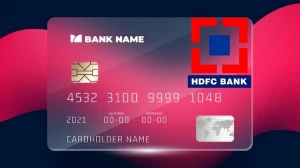
- Home »
- Credit Card »
- What is Interest Charge on Credit Card? When Does Credit Card Charge Interest?
What is Interest Charge on Credit Card? When Does Credit Card Charge Interest?
Interest charges on a credit card are fees applied to an outstanding balance when cardholders don't pay in full, calculated using the card's APR.
by Kowsalya
Published Aug 02, 2023 | Updated Dec 09, 2023 | 📖 5 min read
What is Interest Charge on Credit Card?
The interest charge on a credit card refers to the cost of borrowing money, typically expressed as an annual percentage rate (APR). When you carry a balance on your credit card by not paying the full amount due each billing cycle, the remaining balance incurs interest. This charge is calculated based on the APR and can vary depending on the type of transaction, such as purchases, cash advances, or balance transfers.
It's essential to understand the terms and conditions of your credit card, including the interest calculation method and any additional fees associated with different transactions. To minimize or avoid interest charges, it is advisable to pay your credit card balance in full every billing cycle and be aware of any introductory rates or promotional APR periods.
When Does Credit Card Charge Interest?
Credit cards charge interest when cardholders carry a balance from one billing cycle to the next, commonly known as a revolving balance. The interest, expressed as an annual percentage rate (APR), is the cost of borrowing money. If the full statement balance is not paid in full each month, the unpaid portion incurs interest charges.
The calculation of interest may vary, with some issuers using average daily balance methods. Different transactions, such as cash advances or balance transfers, may have distinct, sometimes higher, interest rates. Understanding these aspects and paying the balance in full can help minimize interest costs and potential impacts on credit scores.
How is Interest Charges Calculated on Credit Card?
Interest charges on credit cards are calculated based on the outstanding balance that is not paid in full by the end of the billing cycle. The interest is typically expressed as an annual percentage rate (APR), and credit cards often have variable rates that can vary depending on the type of transaction. The calculation methods can include daily or monthly compounding, and some issuers use the average daily balance.
Transactions like cash advances and balance transfers may have different, often higher, interest rates. It's crucial to understand the terms and conditions of your credit card to manage and minimize interest charges, with paying the full statement balance each billing cycle being a key strategy to avoid accruing significant interest costs.
MarketsHost warmly invites you to an immersive experience, where we unveil the intricacies of Credit Cards, enabling you to make informed financial decisions with confidence.
What Are the Different Types of Credit Card Interest?
Credit card interest comes in various types, each with its characteristics and implications for cardholders. Here are the main types of credit card interest:
Purchase APR (Annual Percentage Rate)
This is the standard interest rate applied to regular purchases made with the credit card. It is the rate charged when you carry a balance from month to month.
Cash Advance APR
When you use your credit card to withdraw cash from an ATM or get cash equivalents, such as traveler's checks, a higher cash advance APR is typically applied. Interest on cash advances usually starts accruing immediately.
Balance Transfer APR
Some credit cards offer balance transfer options, allowing you to move existing balances from other cards. The balance transfer APR may differ from the purchase APR and can involve fees.
Penalty APR
If you fail to make timely payments or violate other terms of your credit card agreement, a penalty APR may be imposed. This rate is often significantly higher than the standard APR.
Variable APR
Many credit cards have variable interest rates tied to an index, such as the prime rate. The variable APR can change periodically based on fluctuations in the index.
Fixed APR
Unlike variable rates, fixed APRs remain constant, providing more predictability for cardholders. However, they may change under certain circumstances or with advanced notice from the credit card issuer.
Introductory or Promotional APR
Credit cards may offer a lower or even 0% APR for an introductory period, which can apply to purchases, balance transfers, or both. After this period, the standard APR comes into effect.
How to Avoid Paying Interest on Credit Cards?
Avoiding interest on credit cards requires strategic financial management. Here's a detailed guide on how to minimize or entirely avoid paying interest:
- Settle your entire credit card balance each billing cycle to avoid interest accumulation.
- Take advantage of the 21-25-day grace period to pay your balance in full without incurring interest.
- Be mindful of your credit card's Annual Percentage Rate (APR) and opt for lower APR cards if carrying a balance.
- If anticipating a balance, apply for credit cards with lower interest rates to minimize costs.
- Paying extra reduces your balance faster, lowering interest accrued.
- Schedule automatic payments to avoid late fees and interest.
- Use 0% APR introductory periods wisely, considering when the standard APR applies.
- Minimize or eliminate cash advances due to higher interest rates and immediate accrual.
- Keep spending in check to stay within your credit limit, avoiding penalty APRs.
- Understand fees and assess the impact before opting for balance transfers.
- Boost your credit score for access to cards with lower interest rates.
- Familiarize yourself with credit card terms, especially regarding interest calculations and fees.
What is Interest Charge on Credit Card - FAQs
1. What is the Interest Charge on a Credit Card?
The interest charge is the cost of borrowing money, expressed as an annual percentage rate (APR), incurred when a credit card balance is not paid in full.
2. When Does a Credit Card Charge Interest?
Interest is charged when a cardholder carries a balance from one billing cycle to the next, resulting in the accrual of interest on the unpaid portion.
3. How is interest calculated on a credit card?
Interest is calculated using a formula that can be daily or monthly based on your average daily balance and the card's APR.
4. What is a good interest rate for a credit card?
A good interest rate is relatively low and competitive, usually offered to individuals with excellent credit scores.
5. How can I avoid paying interest on my credit card?
Pay your credit card balance in full and on time every month to enjoy an interest-free period.




